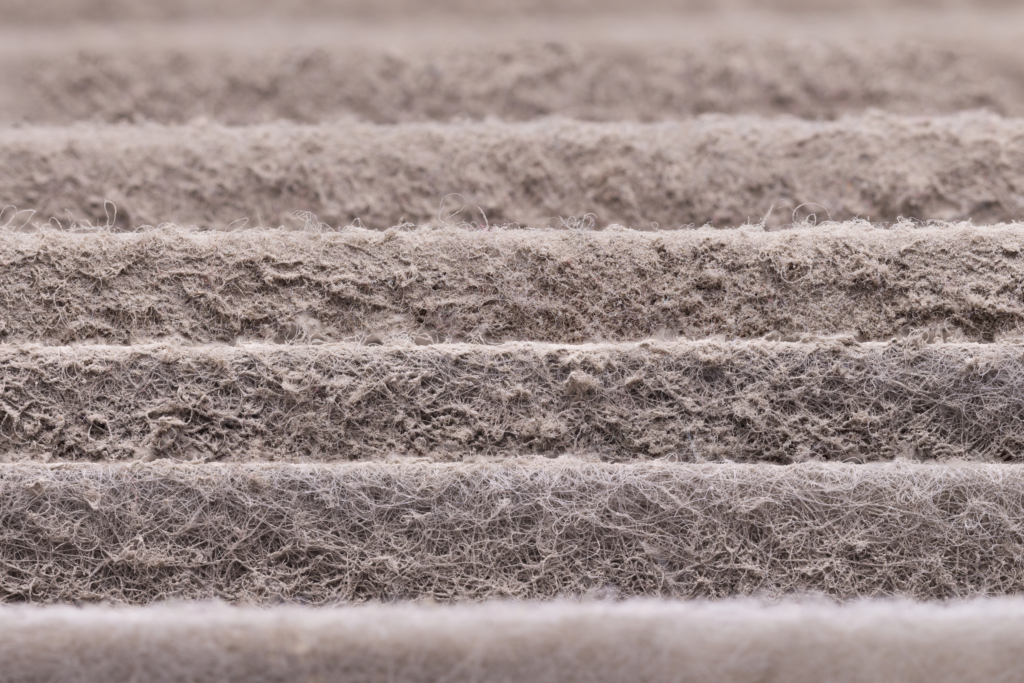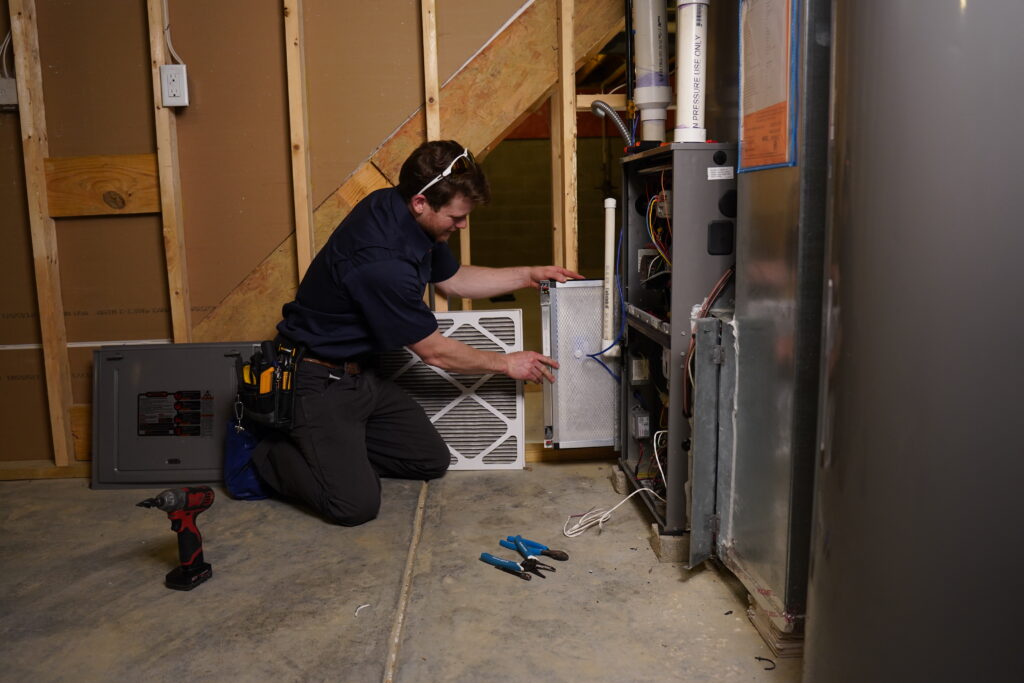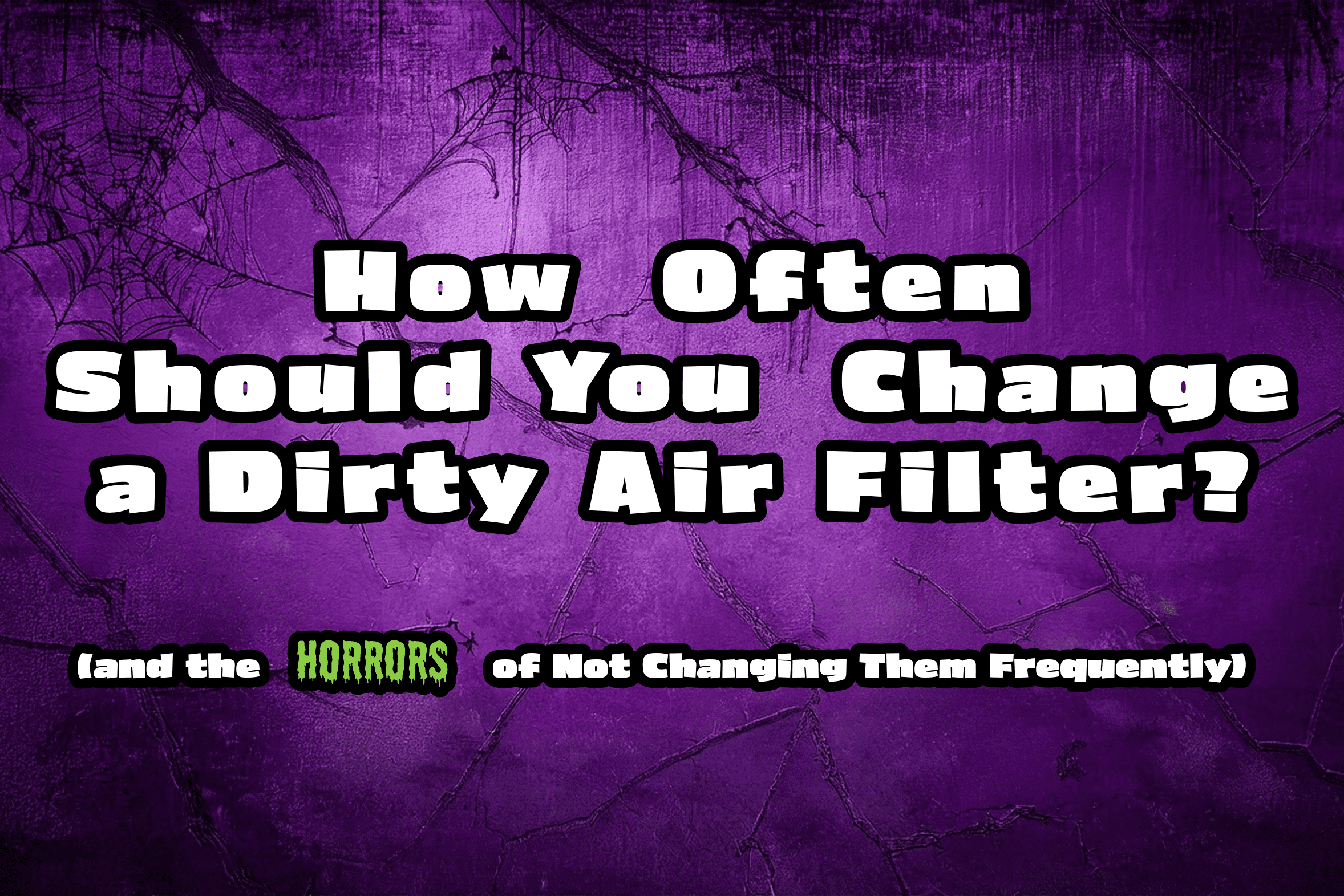The consequences of a clogged air filter are much scarier than you think. Have you ever stopped to think about what happens when your HVAC air filters are allowed to remain clogged for long periods of time? Such an issue may appear trivial, but obstructed air filters can seriously disrupt the purity of your indoor air alongside your overall well-being and reap other adverse effects. Well, today at Clayton-Englewood Heating & Cooling, we aim to enlighten Ohio homeowners about the potential perils of overlooked air filters to avert unnerving HVAC-related ramifications.

What makes a Clogged Air Filter so frightening?
- Deteriorated Indoor Quality – Primarily, a blocked air filter hampers your HVAC system’s ability to curtail airborne pollutants like dust, pollen, and germs, resulting in inadequate indoor air quality. This can escalate respiratory ailments such as asthma and allergies, making this a significant concern for residents in Ohio, where shifting seasons can usher in a host of allergens.
- Elevated Energy Expenditure – Overworking your HVAC system to force air through a jammed filter results in escalated energy consumption. Research conducted by the Department of Energy reveals that replacing a grimy, blocked filter with a fresh one can decrease your air conditioner’s energy consumption by 5% to 15%. Given Ohio’s capricious weather conditions, it is essential to prevent your HVAC system from overexerting.
- System Failure – Ignoring your air filter can lead to more than just compromised air quality and excessive energy bills. Letting your air filters remain unchanged will cause your HVAC system to work harder than it needs to, which in return will build up the extra strain placed on your unit, potentially leading to larger and more expensive system failures (thus repairs) down the road.
- Pollutants and Contaminations – A blocked air filter lets harmful pollutants and contaminants circulate freely in your home. These encompass mold spores, pet dander, and tobacco smoke particles. Such contaminants can instigate various health complications, from mild annoyances like sore throats to more critical conditions like respiratory infections.
- Accumulation of Dust and Debris – Among the most immediate and detrimental implications of a clogged air filter is the build-up of dust and debris in your home. You will find your furniture gathering dust rapidly, with your HVAC vents possibly starting to accumulate a layer of dust. This detracts from your home’s cleanliness and implies continual inhalation of these particles.
- Germs and Bacteria – A lesser-known but equally perilous repercussion of a congested air filter is the spread of germs and bacteria. A filthy filter can become a hotspot for harmful microbes, which then circulate around your home. This can particularly exacerbate pre-existing asthmatic or respiratory conditions.
- Escalated Allergy Indicators – If allergy signs are noticeable despite medication, it’s time to inspect your air filter. Watch out for symptoms like sneezing, coughing, and itching eyes, which are all worsened by subpar indoor air quality.
- Ominous Odors – An obstructed air filter can often lead to unsavory odors permeating your home, ranging from mildewy to foul, depending on the contaminants trapped in the filter. Of course, this is never desirable, so by simply staying on top of your air filter changes, you can prevent unwanted scenarios just like this.
- Skyrocketing Utility Bills – A sudden surge in your utility bills without any alteration in your HVAC usage points to a clogged air filter. The system strains to function, consuming more energy and increasing your expenses.
How frequent should the replacement of air filters be?
- Seasonal Shifts – With Ohio’s drastic seasonal swings, it’s prudent to examine your air filter at the dawn of every season. This ensures that your HVAC system is geared to tackle the demands placed on it year-round. Generally, we suggest homeowners swap out air filters every 30-90 days, depending on usage and lifestyle needs.
- Post-renovations – If you are frequently performing home DIY projects, keep in mind that in most home renovations, it’s advisable to replace your air filter, as construction works release a wealth of dust and debris into the atmosphere, which can swiftly clog your filter.
- Pet Owners – For pet owners, changing air filters more routinely is vital due to the rapid accumulation of pet dander and fur, which can deteriorate your home’s IAQ.

Keeping a clean air filter to sustain your HVAC system and secure superior indoor air quality is vital. For Ohio homeowners, where seasonal changes can significantly impact air quality, regular upkeep is indispensable. By recognizing the signs of a blocked air filter and knowing how to rectify this, you can maintain a hospitable, healthy home.
Don’t delay until it’s too late! Incorporate air filter maintenance into your regular home care practice. With our tips, you’ll be well-prepared to confront any air filter challenges that come your way.
Clayton-Englewood Heating & Cooling is always ready to assist you with any HVAC concerns or scares that are thrown your way! Call today at (937) 412-2911, or schedule an appointment online now by clicking here!





